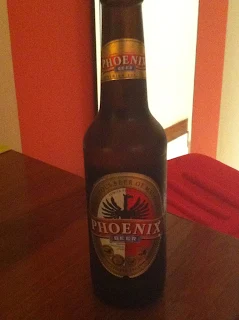 *Lyrics from Joni Mitchell's 'Big Yellow Taxi'
*Lyrics from Joni Mitchell's 'Big Yellow Taxi'
It is said that India is the only country that did not persecute its Jews. It is said to be ever embracing other cultures without making compulsions. The Indian civilization view every moment of time of a lifetime as a continuum, a figment of time, a drop in the proverbial in the ocean of milk a.k.a. Milky Way. People may come and people may go.
Civilizations and conquerors spring and dissipate but Mother Nature drags on through space.
This analogy is succinctly depicted in the history of Mauritius. The inhabitants were leading a peaceful life with their dodo birds and forest. Life was peaceful and the equilibrium was maintained under the auspices of Mother Nature.
Civilizations decadent of their own doings, full of disease and ill intentions had to escape their shores, like roaches escaping their hideouts after a whiff of insecticide, started crawling to their shores. Stories like these are too far too many to be unfamiliar. It happened in Surat, Cochin, Pondicherry, Macau and Hong Kong as history dictates.
For years, Mauritius laid bare uninhabited to be used by Portuguese seaman as a stop over in their exploration out into the Far East. Then came the Dutch who laid claim on the island, squandered all the ebony and killed all the dodo bird just because it was so easy to kill these stupid birds. (I wonder why Dodo Cheng picked this particular bird for her name and not parakeet or peahen which were more aesthetically pleasing?)
The Dutch introduced sugar cane which were brought in from Batavia together with slaves brought from Madagascar and Chinese convicts from Bencoolen.

Mother Nature, with wrath in her path, retaliated with a series of life threatening cyclones. Then, the slaves staged a mutiny. The Dutch found that the Chinese were bad collies, prone to retaliation. Thinking that the island is jinxed, they abandoned post.The French moved in where the Dutch left. More slaves were brought in to work in their sugar cane plantations. They 'culturise' the workers with the French language and culture. After losing the war to the British and the Paris treaty in 1821, the island was annexed to them. The British promised the locals not to disturb the local language and practice. By then, the French culture had been imbibed deep in their psyche. Furthermore many of them were running around with French genes. The British introduced indentured and bonded Indian coolies into this land to work on their vast sugar cane plantations as well as English language to run the country as trade was flourishing. The Indians made good workers. Due to restrictive British policies and economic quandary in Bharat nation, scores of ships with human cargo ply the Calcutta-Madras-Mauritius route carrying cargo from Bihar, Tamil Nadu and Andhra Pradesh, predominantly.

Cut from their motherland, embracing into their newfoundland, they embraced various cultures that came along, a typical Mauritian today, Indian looking (55% population), can flip flop between languages (French, English and Creole), play an important role in the administration and progress of their only motherland they know. Thanks (or no thanks) to Bollywood, their Indianness cannot be shed off. To complement their masala laced local cuisine, they have Bollywood masala stories and tunes!


















